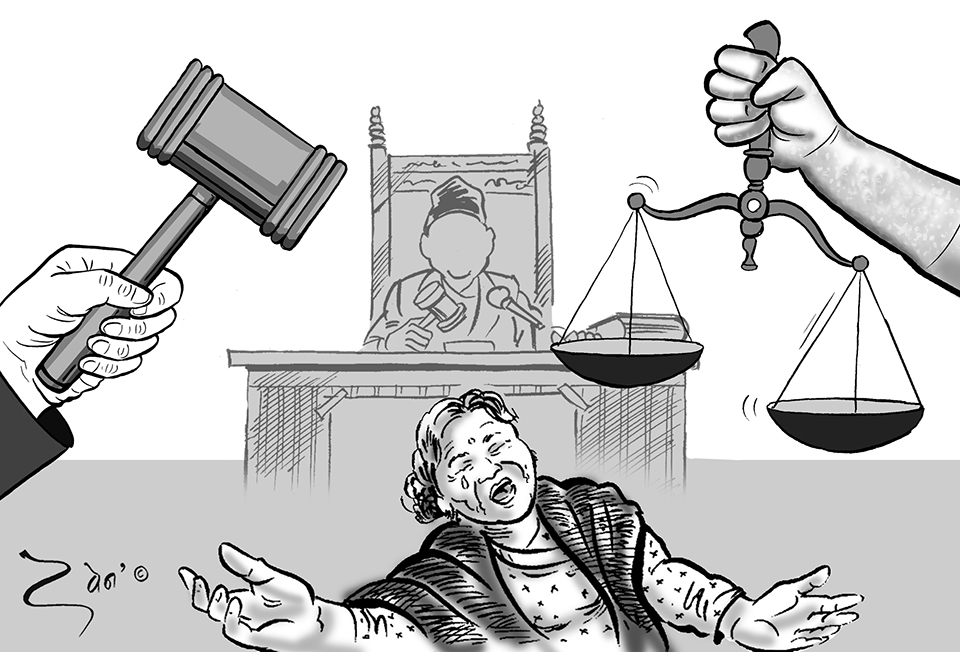BY USMAN BASHIR ABUBAKAR, JULY 31, 2025 | 7:28PM
“He who has witnessed the calamity that has driven us from our homes will not agree to forgive or live in the same community with the perpetrators,” said Bulama Hussaini, a conflict survivor and community leader in Gongolon, Borno state.
To an average Nigerian like Bulama Hussaini, transitional justice means amnesty for the former Boko Haram associates. These perceptions can be traced to the lack of clear communication and genuine consultation by government and development actors and in some instances, to a perpetrator-focused interpretation of the amnesty granted to militants during the Niger Delta Crisis.
Transitional justice goes beyond granting perpetrators amnesty to promoting redress and accountability to the victims and survivors of conflict. The African Union Transitional Justice Policy defines transitional justice as policy measures and institutional mechanisms aimed to address violations that have occurred as a result of violent conflict, authoritarian rule, legacies of political crisis, as well as governance and development deficits, while promoting redress and accountability for victims and survivors.
The Borno state government justified its reliance on the Borno Model, a non-kinetic, DDR-styled approach, due to the continued loss of territory to the Boko Haram group despite increased military spending.
The Borno Model and other models of transitional justice are becoming increasingly relevant for reconciliation, healing, and national cohesion across Africa. Despite the progress attained, victims and survivors of the Boko Haram conflict still felt that their needs had not been prioritised.
“The repentants are given special treatment while we are abandoned,” said Ajide Jiddum, “my husband was killed and I was left with orphans to take care of, no one has asked our opinion or how we feel,” she added. This criticism can be related to the publicized privileged treatment received by the repentants, who are provided with livelihood skills and monetary assistance.
Transitional Justice processes and what they are expected to achieve.
The implementation of transitional justice processes requires a certain degree of buy-in and political action from leaders as well as the wider society. Peace agreements or negotiated political settlements can be used to frame the design and implementation of transitional justice processes.
The African Union Transitional Justice Policy provides that, AU member states shall have the primary responsibility with respect to pursuing transitional justice processes, emphasizing that national and local actors lead in planning, implementing, monitoring, evaluation, and reporting on lessons learned during the implementation of transitional justice interventions.
Essential stages in the implementation of transitional justice include: developing a transitional justice strategy by drawing from the provisions of the African Union Transitional Justice Policy (AUTJP) or other relevant policies. This national strategy will then be transformed into a policy that can be used to guide the adoption of an enabling legislation. From this national policies and legislations, transitional justice programs are designed. Finally, monitoring, evaluation will be conducted to see the effectiveness of the programs and draw lessons that will be used to improve future programs and interventions.
Transitional justice is aimed at addressing the violations that have occurred as a result of violent conflict, authoritarian rule, or political crisis, and promoting redress and accountability for victims and survivors while ensuring peace and reconciliation and preventing the recurrence of violence.
Where did we got it wrong?
The dissatisfaction of survivors and victims of the Boko Haram Insurgency with the reintegration of the former Boko Haram associates in Borno state is mainly due to the alleged preferential treatment of the former Boko Haram associates. This is exacerbated by the government’s lack of genuine consultation and clear communication, which has resulted in transitional justice intervention being misconceived as mere amnesty.
The way Forward
To restore public trust and ensure inclusion in the transitional justice process, there is need for for genuine public consultation, clear communication, and strategic programming. Genuine consultation and clear communication are very critical in restoring public trust in the transitional justice process in Borno state. The relevant actors need to create awareness, and engage the stakeholders and community members in a genuine consultation process to mainstream their voices in to the transitional justice process.
Transitional justice programs and interventions need to be holistic, strategic, and balanced, this because timing and sequencing of interventions is very important. The choice of combination of transitional justice measures should mutually reinforce, and ensure peace and reconciliation, on the one hand, and justice and accountability as well as inclusive development on the other.

